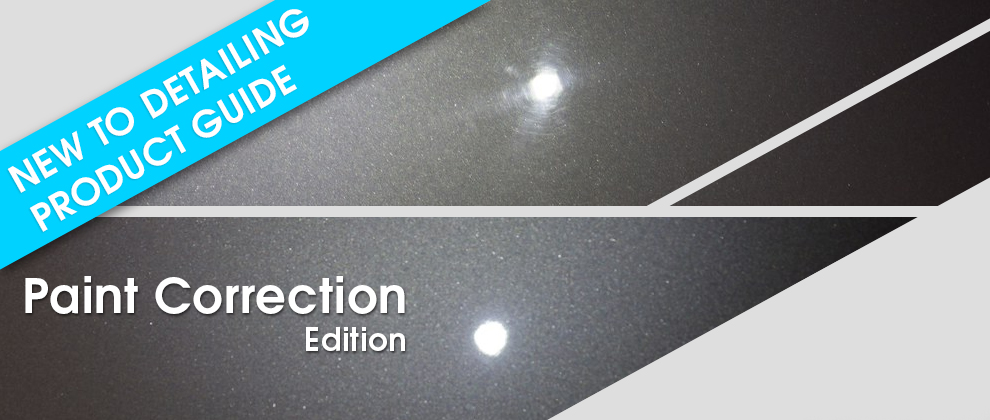
If you are wanting to get in to paint correction, this is, by far, the most daunting aspect of detailing. One because there is so much information out there, but also because you have the highest chance to do some significant damage to a vehicle.
The most important thing to remember about paint correction is to be careful. You are removing paint after all and if you remove too much, there is no going back So make sure to proceed with caution and when in doubt, back it off.
The most confusing thing for beginners is there is not a step by step guide for paint correction. Why? Because that solution does not exist, there are so many variables in each scenario and variances of what people consider “good” condition. Almost every car can be washed the same, but almost every car needs to be thought of differently when polishing.
These are my personal favorites when performing paint correction, once you get the hang of it you can mix and match and try new things when you know what you are supposed to be looking for in a product’s performance.
Chemicals
One-StepMenzerna Medium Cut Polish MC 2500 Very easy to use one-step polish. Used when the damage, (swirls, scratches, holograms) are not that bad. Finishes down really well and many times does not need a follow up polish. |
|
Heavy Cut CompoundFor when you have some really nasty swirls and scratches. removes up tot 1200 grit marks, it really does. Absolutely needs follow up compound/polishes to refine the finish back down. A lot of dusting and a very thick compound so ti can cake up your pad. So clean out your pads often and use multiple pads. |
|
Standard CompoundMenzerna Heavy Cut Compound 400 This is my go-to compound if i need two-steps. Removes most swirls and scratches with ease and finishes down nicely, ready for a polishing step. Low dusting. |
|
Final PolishThis can be done if the finish just needs to be brighten up and not a lot of actual “correction” done. Works amazing paired with The Heavy Cut 400 for a two-step combo that finishes down beautifully. Low dusting. |
|
Pad ConditionerI use this to help give the product a little more lubrication to help it move through the pores, or fibers, of the pad while polishing. Put your polish or compound on the pad and a quick spray or two of this. you want your pad to be “seasoned” as Kevin Brown would say, meaning having your product throughout the pad so you get and even and efficient cut. |
Tools
Large Area PolisherThe best polisher, hands down. Super smooth, cuts like a dream and finishes down just as well. I know its expensive, but trust me it is well worth the cost. |
|
Small Area PolisherYou need at least a 3″ polisher for areas like bumpers, mirror caps, etc. The Griots Garage is a workhorse that will get the job done. There are better polishers for this on the market, but because the smaller surface area means more power at a smaller point, you don’t really need a more expensive polisher, especially if you are starting out. |
|
One Step PadBuff and Shine Uro-Tec Yellow Polishing Foam Pad Soft, pliable pad that still have enough bite to help the cutting ability. Pair it with Menzerna 2500 and you have a great universal one-step system. |
|
Cutting PadMeguiar’s Microfiber Cutting Disc 3″ – 6″ The go-to cutting pad. Cuts great, easy to remove product from, lasts long. |
|
Polishing PadMy go-to polishing pad. Just really good. Soft, good thickness, great balance. Perfect finishing pad. The pad sizes are 1″ over your backing plate size due to the pad being flared out. |
|
Pad BrushUse this after every couple passes on both foam and microfiber pads to help get out the excess product and clear coat you have removed. Just run your polisher at medium speed an run the brush over the pad to remove. |
The best thing to do is to get the right tools an practice. You can read 100 articles and watch 1,000 videos, but until you get the polisher in your hands and really see how each step affects the paint.